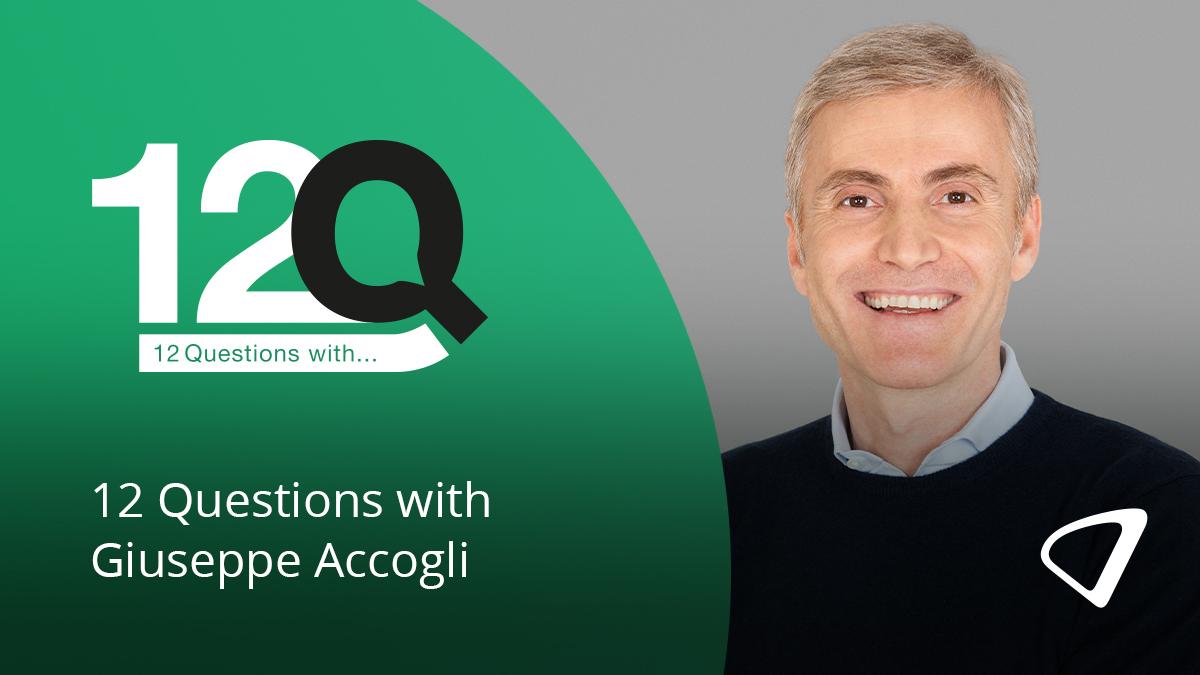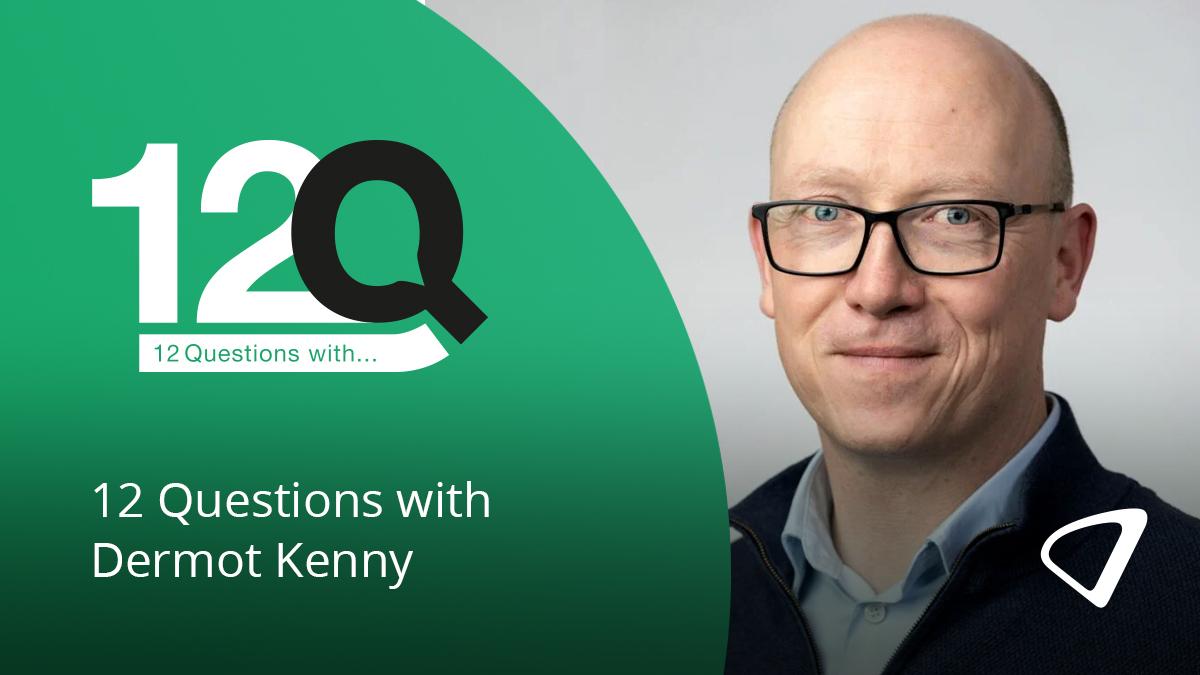12 Questions with Giuseppe Accogli

Giuseppe Accogli became the Group CEO of Chiesi Pharmaceuticals in 2023. With a 25-year career in the med-tech industry, he has held various roles at companies like Baxter and Medtronic, focusing on sales, marketing, R&D, and strategy. Outside of work, Accogli has a keen interest in sport, especially football. He lives between Milan, with his family, and Parma, where he spends a significant amount of his time.
What is your background prior to this role and how did it prepare you for the work you do now? I have spent 25 years in the med-tech sector, working with multinational companies in various roles, including sales, marketing, R&D, M&A, strategy, and product innovation. This experience has given me a comprehensive understanding of different business functions and market dynamics, which helps me lead Chiesi’s global expansion and innovation efforts. My involvement in major M&A and business transformations has played a key role in supporting Chiesi’s growth and achieving our sustainability goals.
What is your proudest professional accomplishment to date? Opening Chiesi’s Biotech Center of Excellence in Parma was a significant milestone for the company, Italy, and for me personally. Beyond its strategic importance and the creation of new skilled jobs in the region, what truly makes me proud is knowing that this investment will positively impact patients, especially those with rare diseases. We feel a deep responsibility towards patients, and we work tirelessly to ensure they receive high-quality treatments. Witnessing our commitment to advancing healthcare in Italy come to fruition was a fantastic moment for the entire Chiesi team.
What are some of the biggest ongoing challenges in your work? One of the biggest ongoing challenges is responding quickly to patients' needs, while navigating a complex framework of regulations, high ethical standards, and maintaining the quality of our innovations and products. The strategic, social, and economic value of the life sciences sector has never been more apparent, especially given the challenges of geopolitical instability, health crises, economic pressures, and growing global competition. Upholding ethical standards and transparency is vital as we expand globally.
At the same time, we face challenges like regulatory complexities, funding constraints, supply chain disruptions, and geopolitical uncertainties, which add to the challenge. Through our investments, we are contributing to Europe's agenda for a stronger biotech sector, while advancing our ambition to better serve people living with diseases worldwide. Balancing growth with sustainability while meeting urgent patient needs remains a continuous effort.
What motivates you about working in pharma? What motivates me most about working in pharma is the impact we can have on patients’ lives across a wide range of therapeutic areas – whether it's respiratory diseases, rare diseases, neonatology, transplantation, or beyond. The opportunity to contribute to improving healthcare globally, ensuring patients have access to innovative, life-changing treatments, is what drives me every day. Our work is about more than just medicine; it's about making a meaningful difference for people worldwide, and that’s what inspires me to push forward in everything we do.
What is your personal mission statement? What values keep you centred in your work? Three key principles drive my approach: perform, accelerate, and transform. These values are at the heart of everything we do, and I encourage everyone in the organisation to embody them. By constantly challenging ourselves to be faster, smarter, and more innovative in how we approach healthcare, we can create better outcomes for patients. It’s about striving for excellence in how we work, ensuring we make a meaningful difference for patients and communities worldwide, while upholding the highest standards of quality and responsibility.
What are your biggest short-term goals for this year and next year? Chiesi's shorter-term goals include advancing the development of carbon minimal inhalers, with ongoing trials aimed at reducing greenhouse gas emissions by up to 90%. We’re continuing to expand our footprint as a business, particularly in the US, Europe, and China, to reach more patients. This is all part of the team’s broader strategy to enhance patient outcomes and drive sustainable growth at a global scale.
What are your biggest long-term goals for five years or 10 years from now? I’m really proud to be part of a team that’s committed to sustainable growth. For me, this means achieving long-term success while making a real difference for patients, the planet, people, and prosperity. We work hard to meet patient needs through innovation, protect the environment, respect human rights, and make sure our employees feel valued and supported. It’s all about creating a positive, inclusive culture where everyone’s ideas and contributions matter. By focusing on our long-term success, we can keep reinvesting in these important areas.
Looking ahead, I’m excited about our 10-year plan, especially the goal of achieving net-zero emissions by 2035 and advancing research in biotechnology and new technologies. I’m also excited to see us continue to enhance patient engagement and build on our sustainability practices. I truly believe we’re on the path to becoming a place where people love to work, and I’m looking forward to seeing all the progress we’ll make together.
What do you see as the biggest challenges facing the industry right now? The biotech and pharmaceutical industries in Europe are facing significant challenges. With the threat of tariffs, shifting geopolitical alliances, energy constraints, and rapid AI advancements, the world is changing faster than ever. Europe urgently needs to close the innovation gap with the US and China by investing in skills, accelerating R&D, and overcoming regulatory hurdles. The ongoing review of pharmaceutical legislation is crucial for navigating these changes. Another major challenge is increasing security by reducing dependence on critical raw materials and R&D. To stay competitive, Europe must mobilise private R&D investment and avoid restrictive regulations.
In my years in the industry, I've seen how these challenges impact our work. I've been involved in projects where regulatory barriers slowed down promising research and witnessed the struggle to secure critical raw materials. Despite these hurdles, I’m proud that Chiesi continues to invest heavily in R&D, focusing on innovative therapies for respiratory diseases, rare conditions, and specialty care, particularly neonatology. Balancing growth with sustainability is key to our sector’s success, and I’m committed to being part of that journey.
What excites you most about current industry trends? I'm most excited about the industry's focus on innovation, both in fundamental technology and sustainable business practices. The rapid growth in biotechnology, gene therapy, and advanced therapeutics is incredibly encouraging. It's inspiring to see the industry striving to achieve great things in a just and transparent manner.
How do you promote patient centricity in your workplace? Our patient centricity focuses on long-term goals, community connection, and sustainability as a Benefit Corporation and a certified B Corp. We prioritise innovative clinical trials to reduce patient burden and improve accessibility, especially for rare diseases. Our global health commitment aligns with the UN’s “health for all” initiative, ensuring treatments enhance patients’ quality of life worldwide. This comprehensive approach places patients at the heart of our operations.
What advice would you give to a young person starting out in this field? My advice for anyone starting a career in pharma is to embrace continuous learning. Every day offers an opportunity to develop new skills and stay up to date with innovations, as the field is always evolving. Staying informed is crucial to success.
Be proactive – take the initiative, seek solutions, and don’t wait for instructions. Your contributions can make a real difference. At the same time, stay authentic. Bring your unique ideas and enthusiasm to everything you do; it will enrich your work and inspire those around you.
What advice would you give to professionals in the pharma industry? Adaptability is key in an ever-changing environment, so embrace change and be ready to pivot when needed. Developing strong critical thinking and problem-solving skills will help you tackle complex challenges and find innovative solutions. Familiarising yourself with the latest analytical and digital tools will also keep you competitive.
Effective collaboration with multidisciplinary teams, along with a flexible, goal-oriented approach, is essential for success. By focusing on these areas, you’ll be well-equipped to navigate your career and make a meaningful impact in the pharmaceutical industry.
Connect with Giuseppe Accogli on LinkedIn.











